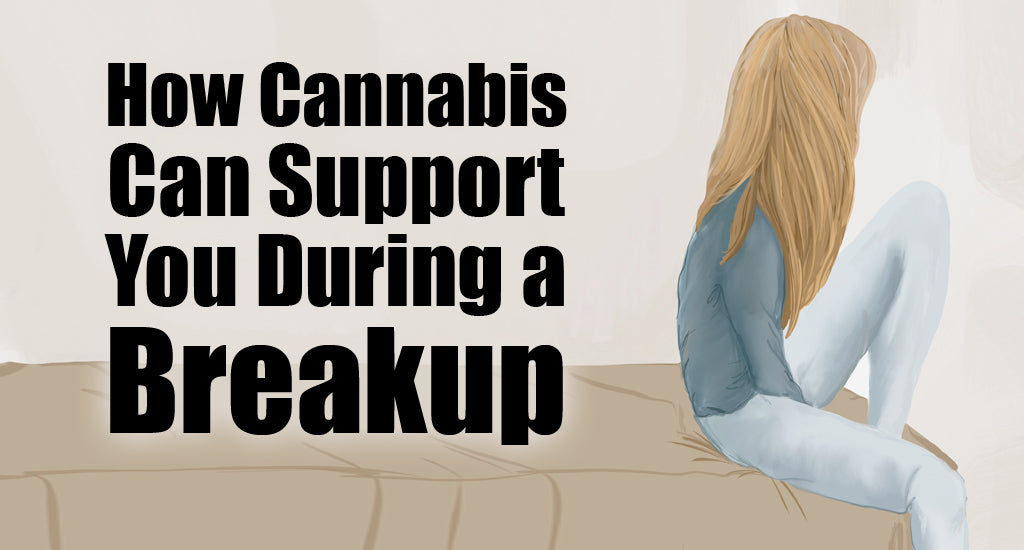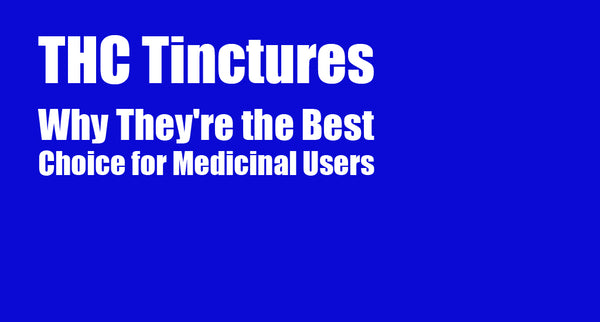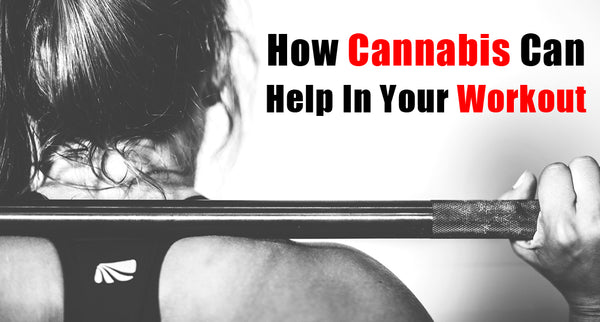
Navigating Post-Breakup Recovery: The Role of Cannabis, Self-Care, and Emotional Healing
While some individuals find their lifelong partner early in life, it's common for many adults to experience multiple romantic relationships. Exploring different relationships before settling down can add variety and help in understanding personal preferences and compatibility.
However, love and relationships come with emotional risks. Multiple relationships often mean facing several breakups, each unique and potentially burdened with personal complexities.
Navigating through a breakup healthily is crucial. Resorting to alcohol or casual encounters might provide temporary relief but doesn't address the root of emotional healing. It's worth noting that some find natural remedies like cannabis beneficial for physical and mental well-being during such times, though this should be approached with caution, considering legal and personal health aspects.
These insights can be helpful for personal reflection on future relationships or to support friends who are adapting to single life after a breakup.
Disclaimer: Listen To Your Own Body
It's important to first understand that cannabis affects individuals differently due to variations in their endocannabinoid systems. This system is crucial in determining how cannabinoids are processed in the body, influencing mood and emotions. However, it's also important to be aware of cannabis' potential link with depression, a consideration particularly relevant for those managing post-breakup emotions.
Related article: Marijuana & Depression: The Role of The Endocannabinoid System in Mood Health
Given the unique nature of each person's endocannabinoid system, reactions to different cannabis strains can vary significantly.
It's wise to take others' experiences as informative but not definitive. After a breakup, it’s especially important to be attuned to your own body and mind. Prioritize what brings long-term positivity and healing over immediate gratification.
How Can Cannabis Possibly Help You Through a Breakup?
Cannabis may influence the brain's chemistry related to pleasure and bonding. Typically, physical closeness, like cuddling or intimate touch, triggers the release of oxytocin in the brain, known as 'the love molecule'. Recent research has explored how oxytocin interacts with anandamide, often referred to as 'the bliss molecule'. This research suggests a connection between anandamide and the feelings experienced when consuming cannabis, as they both interact with similar receptors in the brain.
Furthermore, some studies indicate that consuming cannabis could trigger a release of oxytocin. Therefore, it's hypothesized that for someone experiencing a reduction in oxytocin due to a lack of physical intimacy – a common situation after a breakup – cannabinoids from cannabis might act as a temporary supplement for these chemicals. However, it's crucial to note that this area of research is still developing, and the effects of cannabis can vary greatly among individuals.
First: High-CBD Cannabis: A Remedy for Post-Breakup Anxiety
Since 2019, CBD (cannabidiol) has gained widespread recognition in the United States for its therapeutic properties. As a non-psychoactive component of cannabis, CBD provides relief without the intoxicating effects associated with THC (tetrahydrocannabinol). This distinction has shifted perceptions, even among former cannabis skeptics, highlighting CBD's potential in treating various ailments, including anxiety, as corroborated by scientific studies.
Related article: Cannabidiol as a Potential Treatment for Anxiety Disorders
While CBD is effective on its own, a small amount of THC may enhance its mood-lifting benefits for some individuals. However, it's important to note that THC's effects vary and can be more pronounced in certain people. A minimal amount of THC might increase anxiety in those who are sensitive to it. Therefore, consumers should approach cannabis use with mindfulness and caution, especially when dealing with emotional challenges like a breakup. Legal dispensaries can provide valuable guidance, offering products with accurately labeled CBD and THC content to ensure informed and safe usage.
The emotional aftermath of a breakup can often trigger anxiety, exacerbated by societal pressures that valorize being in a relationship. During such times, understanding your personal response to cannabis, particularly the balance between CBD and THC, can be crucial in managing these feelings effectively and finding solace and perspective.
During such times, self-care is vital, including finding effective ways to manage anxiety. For some, cannabis offers a sense of calm, assisting in accepting their current situation without overwhelming fear or a desire to escape.
Related article: Marijuana and Anxiety - Tips and Tricks To Overcome Your Paranoia While You're High
Second: Cannabis as a Sleep Aid Post-Breakup
While I personally avoid using cannabis as a sleeping aid, many find it helpful for sleep issues, particularly after a breakup. Adapting to sleeping alone can be challenging, especially if you were accustomed to sharing a bed. The absence of a partner, replaced by mundane objects in the bed space, can be unsettling. In my experience, post-breakup sleep disruption led to significant fatigue, affecting daily activities.
Cannabis, notably indica strains, is known for its potential to assist those with insomnia. About an hour before bedtime, consuming an indica product may facilitate easier sleep for many. However, individual responses can vary, and I recommend consulting a healthcare professional for sleep concerns.
Related article: THC and CBD, and the Entourage Effect!
Third: The Role of Cannabis in Personal Reflection
Cannabis can offer a clearer perspective during challenging emotional times, helping to see situations more objectively and alleviating emotional pain.
The end of a relationship, whether romantic or otherwise, often leads to a shift in personal identity. This experience is akin to mourning, where we grieve not only the loss of the person but also the part of ourselves that was entwined with them. During such times, introspection and self-discovery become essential for healing and moving forward.
In this context, cannabis may facilitate deeper self-awareness. From my personal experience, it has been instrumental in uncovering my true self and combating negative self-talk. Especially relevant after a breakup, this process of rediscovery can provide clarity for future relationships. However, it's important to use cannabis responsibly and within legal confines, being mindful of its varying effects.
Balancing cannabis use with other self-care activities is crucial. Engaging in physical exercise, pursuing hobbies, and maintaining social connections can complement the introspective journey that cannabis facilitates. These activities not only provide a sense of normalcy and routine but also contribute to overall emotional and physical well-being.
Fourth: Cannabis can help you to fully enjoy the company of others
Cannabis is often cited for its mood-enhancing qualities, which can be beneficial in coping with post-breakup emotions. While it’s not a direct stimulant for serotonin release, many find that it positively influences their mood, making activities more enjoyable and providing a welcome distraction from lingering sadness. This can be especially helpful in fully appreciating the present moment and adding positivity to the days following a breakup.
Beyond the use of cannabis, engaging in various activities can also support emotional well-being. Spending time with friends and family, indulging in laughter, and participating in enjoyable activities are natural ways to elevate your mood. These social interactions are not just enjoyable but also play a key role in boosting serotonin levels, which is crucial for emotional balance.
In this light, organizing social gatherings can be incredibly therapeutic. Consider inviting friends over for activities that guarantee laughter, such as watching a comedy series like 'Family Guy,' playing board games, or sharing funny stories. Additionally, exploring new hobbies or revisiting old ones, exercising, and spending time in nature can further enhance your emotional recovery. Each of these activities contributes to building a well-rounded and fulfilling life, independent of your past relationship.
Remember, healing is a personal journey that involves a combination of self-care, social support, and sometimes, new experiences. The key is to find what works best for you, whether it’s through moments of solitude, social interactions, or exploring new interests.
Fifth: Cannabis can inspire a greater focus on self-care, a benefit I've personally found significant
During college, amidst struggles with weight and a toxic relationship, I initially turned to alcohol, which only offered temporary relief. However, cannabis prompted a positive shift in my self-care approach. It motivated me to exercise and make healthier choices, underscoring its potential to positively influence mindset and behavior.
It’s important to remember that cannabis affects individuals differently, and moderation is key. What worked for me may not be the same for others. Post-breakup, prioritizing your overall health is crucial. Taking care of your physical well-being can positively impact your mental state.
In addition to cannabis, incorporating various self-care practices — such as exercise, balanced nutrition, and connecting with supportive friends and family — can be immensely beneficial. These practices, along with responsible cannabis use, if chosen, can offer a comprehensive approach to managing the emotional aftermath of a relationship’s end.
How To Achieve Healing Through Cannabis
After considering the information above, you might be intrigued about using cannabis as a support during your breakup. If you're new to cannabis, you may wonder about the next steps. The first thing to consider is your preferred method of cannabis consumption and finding the right strain for the desired effect you seek.
First: Cannabis Consumption: Methods, Considerations, and Safety Tips
Begin by choosing your preferred method of consuming cannabis. For experienced users, this might be straightforward, but beginners might find the array of options overwhelming.
It's important to consider both health and legal factors when selecting your method. If you're new to cannabis or have specific health concerns, consulting with a healthcare professional or knowledgeable dispensary staff is advisable.
For an overview of common smoking methods, 421Blvd offers this helpful guide.
Non-smoking alternatives include cannabis pills, edibles (both store-bought and homemade), and topical oils. The primary difference between smoking and edibles lies in the onset of effects: smoking provides almost instant results, while edibles can take 30-60 minutes. With edibles, start with a small dose, such as 5mg, to gauge your tolerance, especially since standard doses are usually around 10mg. This cautious approach helps avoid overconsumption due to the delayed effects.
Lastly, ensure all cannabis products, especially edibles, are stored safely to prevent accidental ingestion by children or pets.
Related article: 7 Differences Between Smoking Weed and Eating Edibles
Second: Finding The Strain For You
Choosing the right cannabis strain is crucial, depending on your specific needs. Broadly, strains fall into three categories: Indica, Sativa, and Hybrids.
-
Indica strains are known for their sedative effects, making them suitable for addressing sleep issues.
-
Sativa strains often provide energizing effects, ideal for daytime use or activities requiring creativity.
-
Hybrids combine qualities of both Indica and Sativa, offering a balanced experience.
For anxiety relief, high-CBD strains are recommended. CBD, or Cannabidiol, is valued for its calming properties without the intense psychoactive effects of THC. The THC to CBD ratio in a strain is important; high THC strains are more psychoactive, whereas higher CBD strains are more relaxing.
Remember, individual responses to cannabis vary. What works for one may not suit another. If you're uncertain about the best strain for you, discuss your goals with a budtender at your local dispensary. Their expertise can guide you to an informed choice, tailored to your needs and tolerance.
Related article: Guide to a Successful First Cannabis Experience: Tips and Insights for Beginners
Third: Here are a few suggestions to spark inspiration
-
Cook and Chill: Prepare a favorite meal, enjoy cannabis, and relax with a beloved movie or TV show – maybe Gnocchi with "Game of Thrones"?
-
Nature Walk: A post-smoke stroll in the park can be uplifting. Capture photos of peaceful spots that resonate with you.
-
Journaling: Post-consumption, write about positive topics. This can be a therapeutic shift from focusing on recent challenges.
-
Meditation: Incorporate meditation into your routine. Enhanced by cannabis, it can help calm a busy mind and improve brain chemistry.
-
Mindfulness: Practice mindfulness during consumption. Observe your thoughts and sensations, using this time for introspection or relaxation.
-
Comfortable Setting: Set up a cozy, safe environment with elements like soft lighting and soothing music to enrich your experience.
Fourth: Do not consume cannabis in an environment that makes you feel uncomfortable
When consuming cannabis, applying principles similar to those used with psychedelics can enhance your experience. Consider the following:
-
Comfortable Environment: Only consume in places where you feel safe and relaxed. Your surroundings can greatly influence your experience.
-
Legal Awareness: Stay informed about local cannabis laws. Remember, public consumption is often illegal, even where cannabis is legal.
-
Mental State: Your mindset affects your experience. Wait for a time when you're feeling calm and positive.
-
Preparing Your Space: At home, create a comfortable area with things like cozy seating, calming music, and refreshments.
-
Choose Your Company Wisely: If not alone, surround yourself with supportive, relaxing people.
-
Safety Plan: Have a contact ready for emergencies and keep a phone accessible.
Prioritize positive experiences and avoid risks that could harm your health, happiness, or wallet. Informed and cautious consumption is key to a safe and enjoyable cannabis experience.
Fifth: Embracing Self-Discovery and Healing Through Journaling
Journaling can be a powerful tool in your journey of self-care and healing, particularly after a significant life change such as the end of a relationship. It's more than just writing; it's a process of introspection, reflection, and growth.
-
Expressing Feelings: Start by writing down your emotions. Be honest and raw. This isn't about crafting perfect sentences; it's about pouring out your feelings onto the page.
-
Documenting the Process: Note down not just what you feel, but why you think you feel it. This helps in understanding your emotional responses.
-
Planning Next Steps: Journaling isn't just about the past; it's about the future too. Write about your hopes, fears, and what you want your next steps to be.
-
Daily Engagement: Commit to reading your journal every day for at least 15 minutes. Modify and add to it. This daily ritual helps in processing your emotions and reaching conclusions.
-
Re-Reading for Truth: When you re-read what you wrote previously, it either rings true or it doesn't. This helps in understanding your evolution and recognizing patterns in your thoughts and feelings.
Conclusion
In conclusion, the path to self-exploration and recovery is a journey that unfolds gradually and requires your patience and commitment. While incorporating cannabis can be beneficial, it's essential to remember that it's just one aspect of a comprehensive self-care strategy. A holistic approach, encompassing various forms of self-care and support, is crucial for a more balanced and effective healing process.
It's perfectly normal to have days when you don't feel great. Grieving is a natural and necessary process. Allow yourself to fully experience your emotions, understanding that each day brings a new chance for progress and healing. Rather than suppressing your feelings, embrace them. With time, you will find peace and establish a new sense of normalcy in your life.
Concentrate on the small victories. This journey is about personal growth, not about meeting others' expectations. Avoid falling into negative patterns, as they can lead to a sense of failure. Maintaining positive habits is key to building a stronger, more resilient you.
The conclusion of a relationship marks not just an end, but also the beginning of a new chapter in your life. Embrace this period of pain as a phase of personal growth. Anticipate the good that is yet to come and be thankful for the valuable lessons you're learning now.
May this guidance provide some solace during tough times. Remember, you're not alone in this journey. Keep moving forward – there's a community here cheering you on.
Stay toasty my friends...



